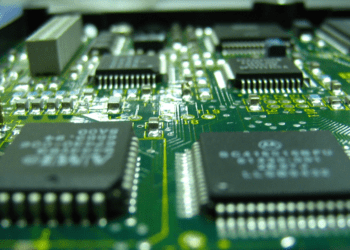The Strategy and Finance Committee of the South Korean National Assembly passed the chip bill in a subcommittee meeting. It is anticipated the long-awaited chip bill will get a second green light in the plenary session which is likely to happen this month.
The chip bill is perceived to be a fruitful step for the distressed yet growing chip sector in South Korea. A majority of chipmakers have filled in positive remarks for this new bill.
With the adoption of a chip bill, certain changes will infiltrate the chip industry. For taxation, large chip companies have to give tax credits of up to 15 percent instead of 8 percent. As for small-scale companies, it will be 25 percent in place of the current 16 percent. This new change in tax rules caters to the jump in investments in the past few years.
The South Korean government is revitalizing the country’s chip industry. They don’t want to fall behind in the competitive chip race played by major countries like the US and China. Both countries have a good grip over global chip industries and to some extent the US has started to secure its place in the field.
The chip bill will be in harmony with the recent efforts for advancing chip technology and manufacturing. Prominent companies such as SK Hynix and Samsung Electronics have built partnerships with the government.
While SK Hynix participated in developing flash memory technology, Samsung invested in non-memory chip clusters. Samsung plans to build the biggest cluster for chips in the next 2 decades. It has allocated more than $200 billion to this project.
The Korean economy, the 4th largest in Asia, may find it hard to thrive without empowering its critical industries. With this reflection, Korea’s Ministry of Finance advocates the tax bill for the chip industry as it will incentivise chipmakers.
The finance ministry draws inspiration from the Organization for Economic Cooperation and Development (OECD), an international forum run to promote sustainable economic growth. The OECD has adopted support measures that are investor friendly and the ministry believes South Korea should follow the same path.
The ministry also recognizes the worldwide economic slowdown and its negative effects on economies. That’s why an emphasis on balancing inescapably crumbling exports and imports has been made by the ministry as a coping mechanism.
South Korea’s chip industry has made a huge contribution from an economic perspective. Chips are the number one export item generating billions. Korean chipmakers hold around 20 percent of the global market share.
However, the upcoming years are going to be much more difficult for the Korean chip business. The globally disrupted supply chain has hampered the chip market already. The demand for chips is more than ever but the problem for South Korea remains its capacity building.
In such competitive transitions, South Korea looks to double its ability as well as supremacy, especially in the memory chip sector. As per think tanks, it’s time for Korea to drop favouritism and allot tax benefits equally. Giving subsidies to private companies via chip bill is one of the most righteous steps if the country wishes to maintain its position in the semiconductor sector.






